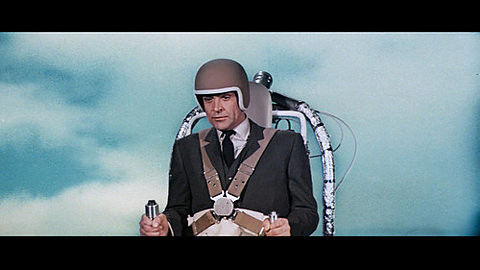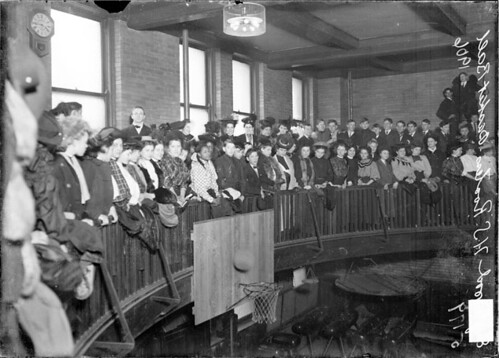
“The Homeric poems conceal nothing, they contain no teaching and no secret second meaning. Homer can be analyzed, as we have essayed to do here, but he cannot be interpreted. Later allegorizing trends have tried their arts of interpretation upon him, but to no avail. He resists any such treatment; the interpretations are forced and foreign, they do not crystallize into a unified doctrine. The general considerations which occasionally occur…reveal a calm acceptance of the basic facts of human existence, but with no compulsion to brook over them, still less any passionate impulse either to rebel against them or to embrace them in an ecstacy of submission.”
— Erich Auerbach, Mimesis
Derrick Rose has a problem. His hyperathletic game around the rim isn’t drawing enough fouls to make his production as efficient as the true top-flight talent in the league. His fast-twitch forays into the paint, knifing between and around much larger men to tomahawk a dunk or gently lay in an improbable basket are apparently too effective at avoiding contact. His game leverages the fact that he’s faster and more nimble than anyone else on the court; he is a point guard who racks up assists by collapsing defenses en route to the rack and dishing it to newly-open teammates if he can’t quite complete his solo trip. Other top creators in the league create looks for their teammates by engineering situations; Rose engineers a chaos in which his gifts allow him and his compatriots to thrive. The knock on him is that he’s simply too good at making others miss, at sliding next to where the defense expected him to end up. If he tried a little less to avoid contact, the thinking goes, he’d get to the line more often and have to rely less on making the circus layups he forges.
This criticism may be accurate, but it’s odd to tell a player that the hole in his game is that he’s too good at confounding his opponents entirely, rather than just partly. The suggestion isn’t that he do any one thing differently, but that he do a better job at leveraging the rules of the game. Rose plays a game within the rules, trying his best to score and shooting free throws when he earns them. He is engaging with the diktats of the rulebook at face value as they are intended, as negative regulations that punish transgressors. He’s trying to game the guy guarding him and the help defenders who will collapse on him. His approach would be the same in a college game or in a pickup game. Score the ball; deal with the fouls when and if they come up. Rose seems to see his job as playing by the rules governing dribbling, pivot feet, traveling and the grab bag of other offensive regulations. The rules restricting the defense are its responsibility.

It is all very different in the Biblical stories. Their aim is not to bewitch the senses, and if nevertheless they produce lively sensory effects, it is only because the moral, religious, and psychological phenomena which are their sole concen are made concrete in the sensibile matter of life. But their religious intent involves an absolute claim to historical truth. The story of Abraham and Isaac is not better established than the story of Odysseus, Penelope, and Euryclea; both are legendary. But the Biblical narrator, the Elohist, had to believe in the objective truth of the story of Abraham’s sacrifice—the existence of the sacred ordinances of life rested upon the truth of this and similar stories. He had to believe in it passionately; or else (as many rationalistic interpreters believed and perhaps still believe) he had to be a conscious liar—no harmless liar like Homer, who lied to give pleasure, but a political liar with a definite end in view, lying in the interest of a claim to absolute authority.”
— Auerbach
Dwyane Wade often has the opposite criticism leveled at his game, that it is aesthetically shameful for a man with his quicksilver gifts to spend so much of his effort trying to wrong-foot his defender into fouling him. Many of his drives seem engineered to create contact with his defender to get a whistle, and then put up a shot somewhere under the umbrella of continuation. He has averaged between nine and eleven free throw attempts per game every year of his career since his rookie year, when he averaged 5.1. (Rose is attempting 5.3 attempts per game this season, the best mark of his career.) Wade can and does dazzle us when he uses his gifts to do things others cannot, so his occasional dedication to turning a game into a whistle-filled stop-and-start affair with play dictated more by referees than players is a betrayal of the fans and the game, an amorally utilitarian use of the rules to score points at the expense of transcendence.
The problem is that Wade, rather demonstrably, benefits from this. Unless you think his injury-prone body suffers at the hands of all this contact in a way that will shorten his career appreciably1, no substantive case can be made for why he should stop doing anything he’s doing. He’s a better player for those fouls, scoring more points on fewer shots than he might if he worked harder to make every basket and stopped worrying about fouls. It may make his game uglier, but why should he care? Any solution to the problem, if it is a problem, lies in the hands of the refs making the calls and the rules they enforce. Wade is taking advantage of a situation he didn’t create, maximizing his impact at the expense of the occasional transcendent moment worth no more than the points he’s already getting at the charity stripe.
1: This is entirely possible, and maybe even provable on aggregate, but seems pretty unknowable for the specific case of Dwyane Tyrone Wade.

“The old man, of whom we know how he has become what he is, is more of an individual than the young man; for it is only during the course of an eventful life that men are differentiated into full individuality; and it is this history of a personality which the Old Testament presents to us as the formation undergone by those whom God has chosen to be examples. Fraught with their development, sometimes even aged to the verge of dissolution, they show a distinct stamp of individuality entirely foreign to the Homeric heroes. Time can touch the latter only outwardly, and even that change is brought to our observation as little as possible; whereas the stern hand of God is ever upon the Old Testament figures; he has not only made them once and for all and chosen them, but he continues to work upon them, bends them and kneads them, and, without destroying them in essence, produces from them forms which their youth gave no grounds for anticipating…And how much wider is the pendulum swing of their lives than that of the Homeric heroes! For they are bearers of the divine will, and yet they are fallible, subject to misfortune and humiliation—and in the midst of misfortune and in their humiliation their acts and words reveal the transcendent majesty of God. There is hardly one of them who does not, like Adam, undergo the deepest humiliation—and hardly one who is not deemed worthy of God’s personal intervention and personal inspiration.”
— Auerbach
Rose and Wade are players at two ends of a spectrum. At the end I’m calling Homeric, there are the players who seem to play for baskets, not points. If they get fouled they’ll happily take their free throw(s), but the goal is to put the ball through the hoop. This is the basketball of theory, where fouls exist to reign in behavior out of step with ideal play. Rose seems to play within this frame, as do many others. Young players often do their work here, but some veterans also do. There’s no one reason why a player would play his game without taking strategic advantage of its arbiters; Rose seems to play this way because his quickness and proprioception allow him to take shots anyone else would have trouble replicating, but others do because they don’t yet have the refs’ biases internalized, because they’re not smart enough to do it on the fly, or because they’re not deft enough to effectively execute.2
2: Shaq, for instance, by dint of being the closest thing the league has ever seen to a ball-playing wall of meat, doesn't seem to ever get the benefit of the doubt you need to manufacture a call.
At the far Elohist end of said spectrum, there are the players actively maximizing the parts of their game that subvert the rules to their advantage. Most obvious is the creation of contact to draw calls on offense, long the calling card of Dwyane Wade and Paul Pierce3. Rip the ball through the extended arms of the defender. Drive directly into his torso and flail up a shot. Flopping also falls squarely in this category. Exaggerating real but minimal contact, flailing and/or falling over almost nothing, making the incidental look like a mugging creates turnovers, puts your counterpart in foul trouble. Part of what makes Manu and Chris Paul so good is that they’ll happily commit what amount to physical lies to gain an advantage. It can be ugly basketball, but these players know that, for all the moments of transcendent physical magic, the job of the NBA player is to win, and the rules that were invented to govern play can be used to manipulate it.
3: As a Celtics fan who has seen a lot of the Truth in action, I've noticed a funny thing about his calls: he gets a lot of calls he doesn't strictly deserve, but he also doesn't get a decent number he does. He's the wing player who cried wolf, and refs often seem to think a real foul is him playing up nothing. I suspect he still gets more calls than he maybe should, and this development is entirely his fault, but he does lose a number of them because of how he's played over the years. It's an interesting dynamic to watch in action. I doubt he's the only guy for whom this is true, but it's more dramatic for him than for anyone else I've noticed.
The difference here is one of degree and emphasis, not anything like a pure dichotomy. The debate about Rose’s ability to draw fouls is noteworthy because it falls so far to one side of the spectrum. While explosive athleticism has its high water mark in a player’s youth, it doesn’t desert older players so much as slowly dissipate.4 At the same time, the savvy to exploit the duties and weaknesses of the men with whistles grows for all but the most blockheaded players as their service time rolls on, but there is nothing to stop a precocious rookie from using the same bag of tricks. All it takes is to recognize that playing NBA ball is a performative act, and that adjusting one's actions to those that judge the performance is as smart as good shot selection.
4: Catastrophic and chronic injuries are the wild cards here, of course, cutting players down in their tracks or leaving them diminished in a moment. They're something that can't be planned for or anticipated, however, and lie outside of what we're discussing here.
The other factor in this, of course, is the star call. For all that officiating strives to be fair to all in all situations, the NBA is a league where an established star gets the benefit of the doubt, and that is exactly what we’re talking about here. If Kobe Bryant draws a lot of contact in the lane against a rookie, even if the rookie managed to stay within the tenets of verticality, Kobe is going to get the call more often than not. The narrative of a career makes the established star of the NBA firmament “more of an individual” than a scrub who isn’t on a first-name basis with the ref. You don’t have to posit conscious bias to see how this colors calls. Again, so long as this discrepancy exists, players would be foolish not to exploit it as much as they are able.
The ideal player, of course, would walk in both these worlds. Derrick Rose isn’t going to stop being able to jump through the roof even if he succeeds in getting more calls, and Dwyane Wade, for all his ref-leveraging, also spends plenty of time leaving mouths agape. The friction comes on our side of the TV set, where we want to be thrilled with high wire acts of derring-do and where playing to the ref, especially done by our team’s opponent, is an abasement of the game. The players in the league would do best, and I think largely are, to try and be both. Athletic plays raise awareness in a way that can fuel a career. Blake Griffin is on a bad team and plays little defense, but every game he plays is must-see. Leveraging the calls helps a player maximize his efficiency and manufacture wins. When the two conflict at the margins, like with Derrick Rose, we get the only real disconnect. Fans, I think, are and should be rooting for spectacular acts of Homeric heroism, but players would probably be better served to look toward the Elohist side whenever in doubt. Here’s hoping not all of them figure that out. Whenever there’s friction between aesthetics and efficiency, I hope it's a fair fight.

No comments:
Post a Comment